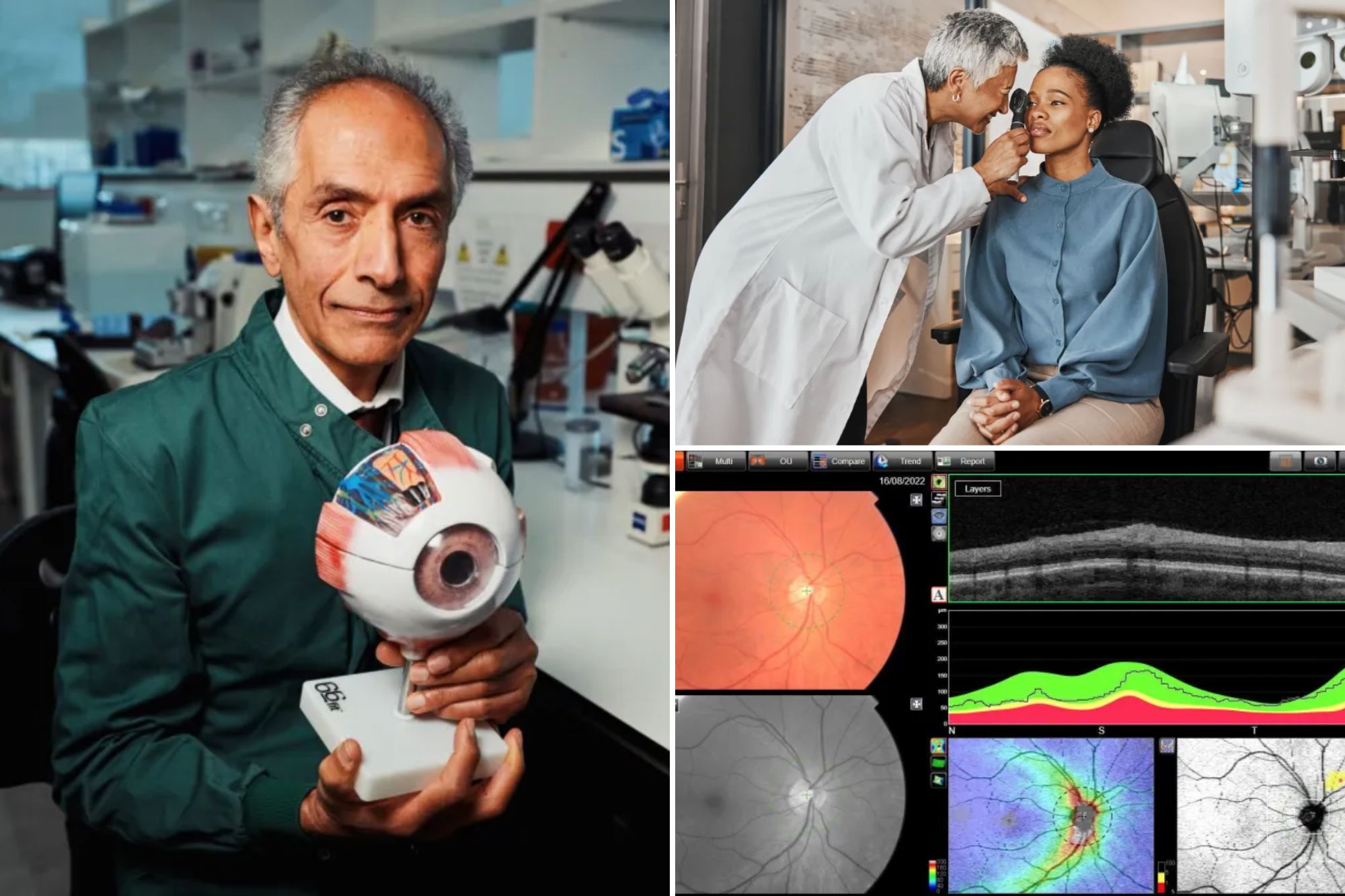
Your optometrist may soon be your first line of defense against dementia.
Data scientists and clinical researchers are working with optics to develop a digital tool capable of detecting early signs of neurodegenerative disease – just by scanning your eyes.
“The eye can tell us a lot more than we thought possible,” said Baljean Dhillon, professor of clinical ophthalmology at the University of Edinburgh and co-leader of the project.
Scotland’s eye-opening research
The NeurEye research team, led by the University of Edinburgh and Glasgow Caledonian University, has already collected nearly one million eye scans from opticians across Scotland, making it the largest dataset of its kind.
Using artificial intelligence and machine learning, they plan to analyze the images for patterns that may indicate a person’s risk of developing dementia, while also providing a broad picture of their overall brain health.
“The blood vessels and nerve pathways of the retina and brain are closely connected. But unlike the brain, we can see the retina with simple, inexpensive equipment found on every high street in the UK and beyond,” said Dhillon.
A growing problem
In 2024, an estimated 6.9 million Americans age 65 and older were living with Alzheimer’s disease, the most common form of dementia. As the population continues to age, this number is only expected to increase.
The NeurEye team is optimistic that AI eye scans will one day enable optometrists to identify early signs of dementia during routine examinations.
The software could lead to earlier diagnoses, giving patients and their families a critical head start in managing the memory-robbing disease. It can also be used as a way to monitor cognitive decline, experts say.
Researchers hope that identifying people at risk of dementia could speed up the development of new treatments by helping scientists identify patients most likely to benefit from clinical trials and better monitor their responses.
On a personal level, being aware of the risk of dementia can inspire some people to make lifestyle changes that can help delay or reduce the likelihood of developing the disease, according to the Lancet Commission, which added the loss of looking at his list of recent dementia risk factors. year.
The American Optometric Association currently recommends that healthy adults between the ages of 18 and 64 get a comprehensive eye exam every two years, while those over 65 should get an exam every year.
A family’s heartbreaking journey
David Steele, a retired mechanical engineer from Scotland, knows firsthand the consequences of a late diagnosis.
His mother had been visiting the optometrist regularly as her eyesight deteriorated. Initially diagnosed with macular degeneration, only later did doctors realize that the real cause was cerebral blindness associated with Alzheimer’s.
In an interview with BBC Scotland News, Steele told how an earlier diagnosis could have given his family much-needed time to prepare for his mother’s cognitive decline before it became too severe.
“You may not want to know the message, but you really should,” he said. “Anything that can be put in place early is really, really important, because you have to prepare for when life doesn’t get easier to manage.”
#Early #signs #dementia #eyes #tool
Image Source : nypost.com